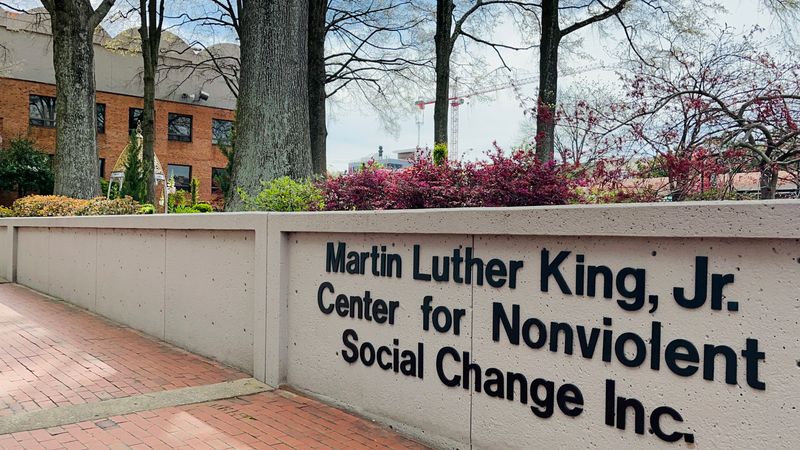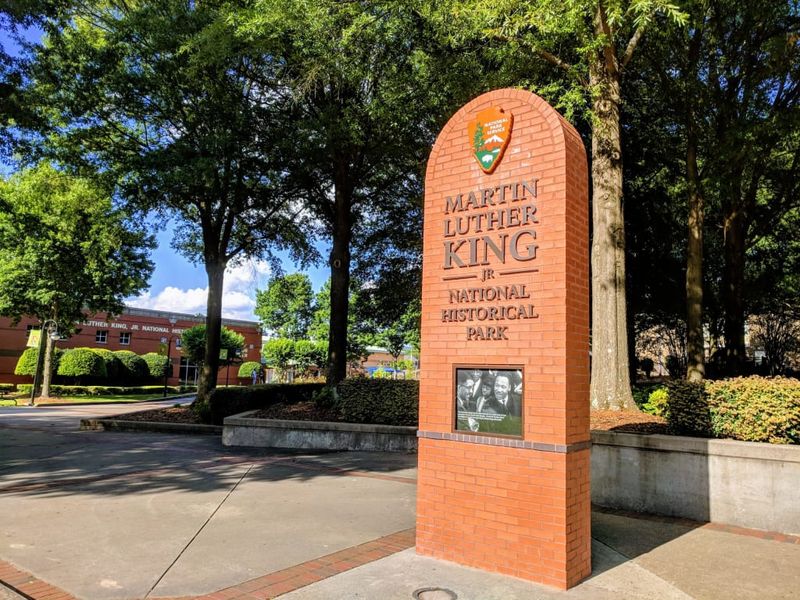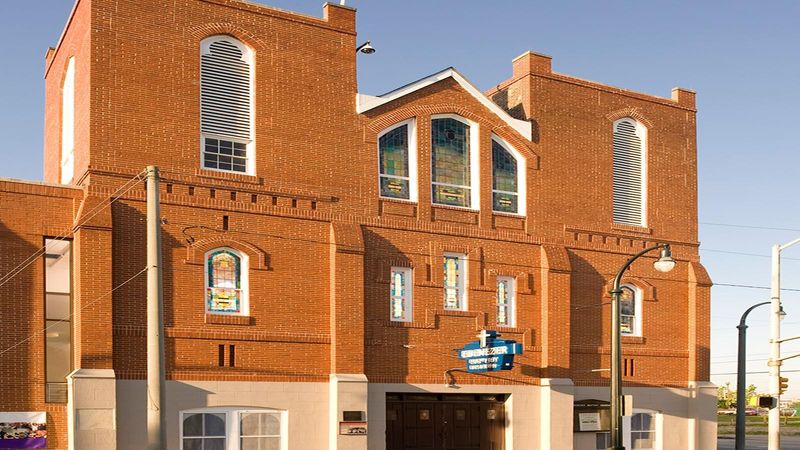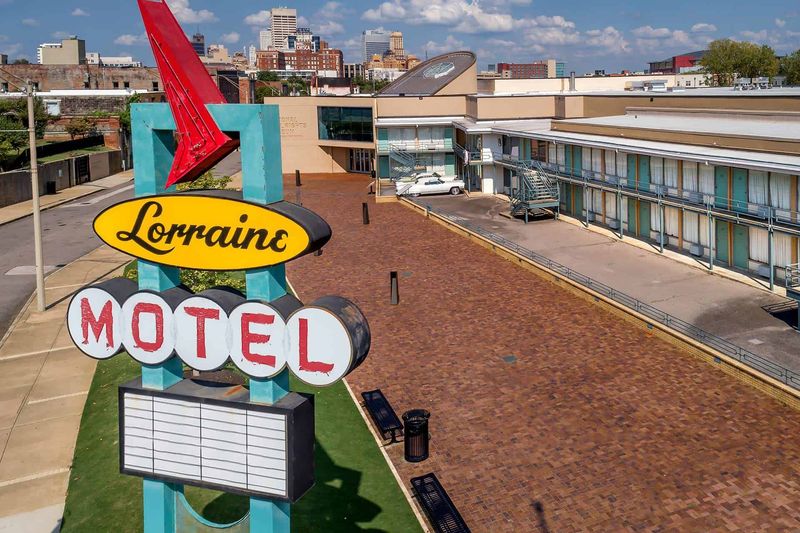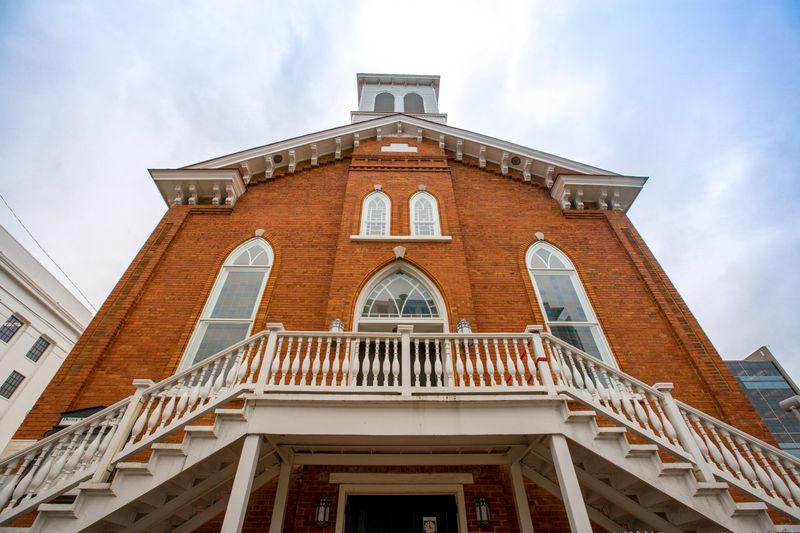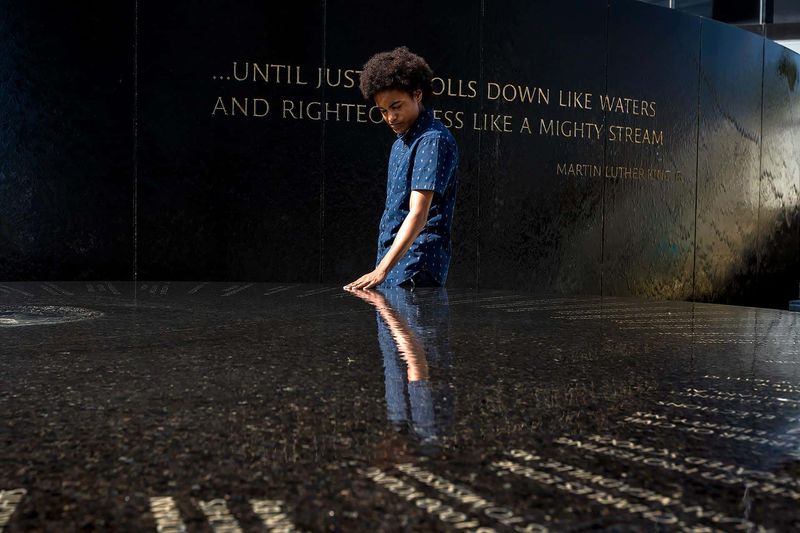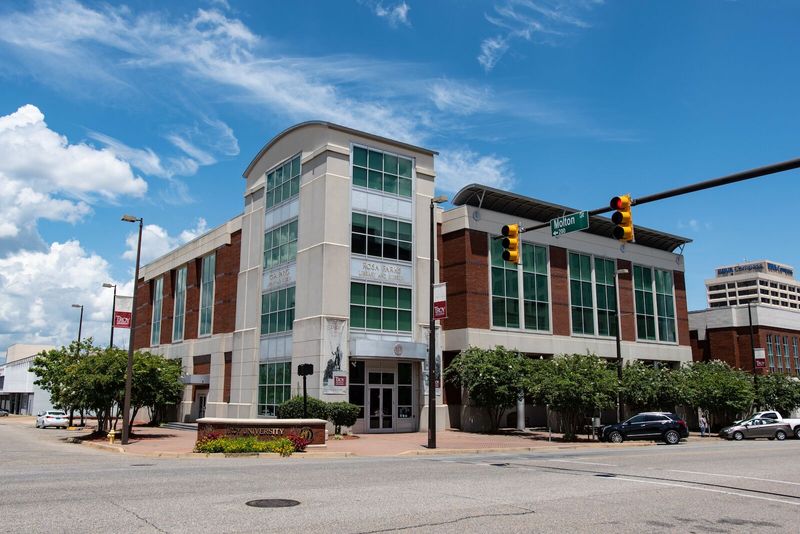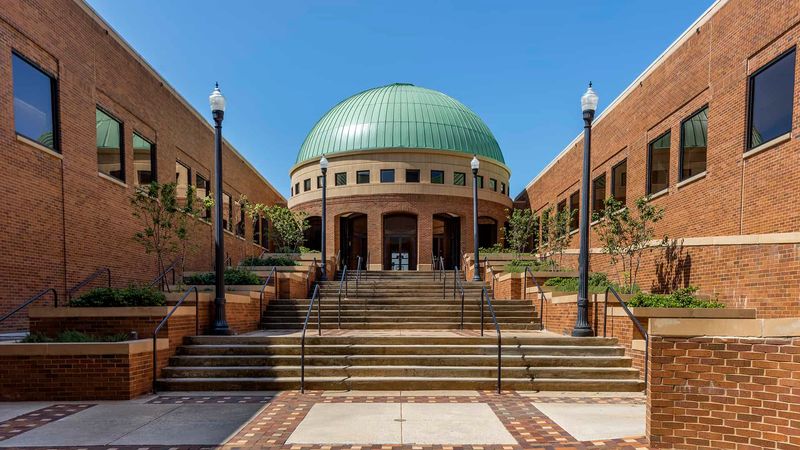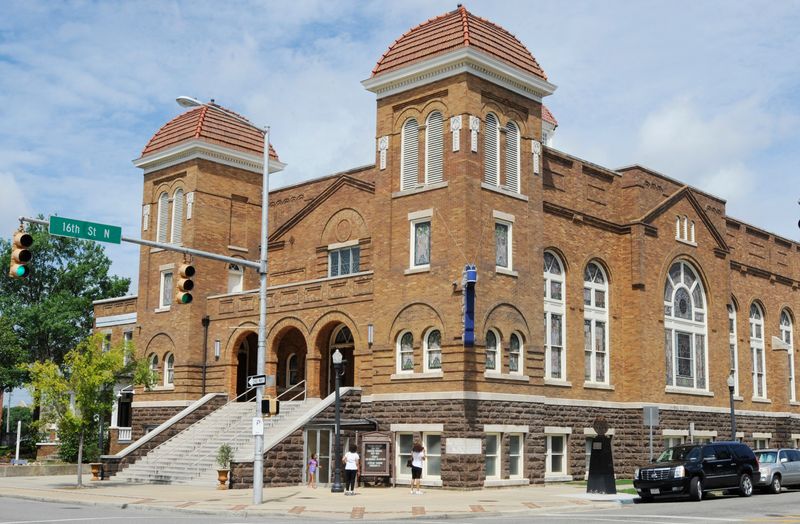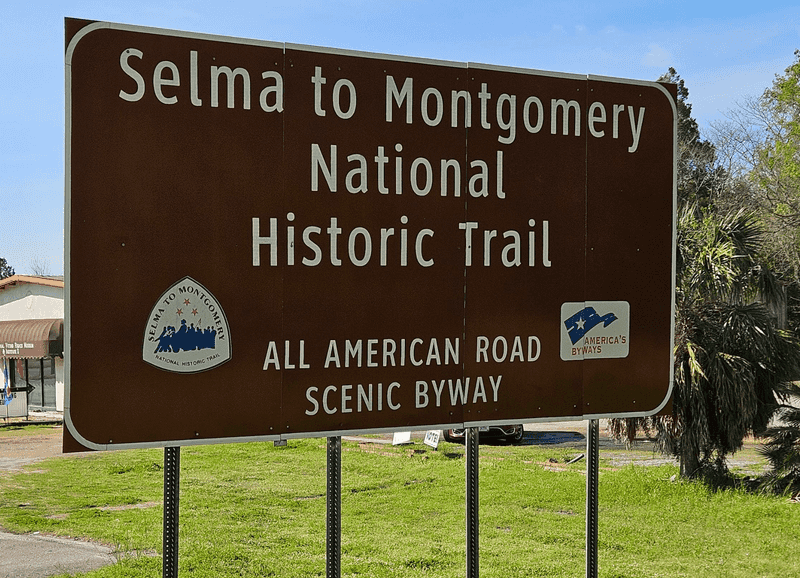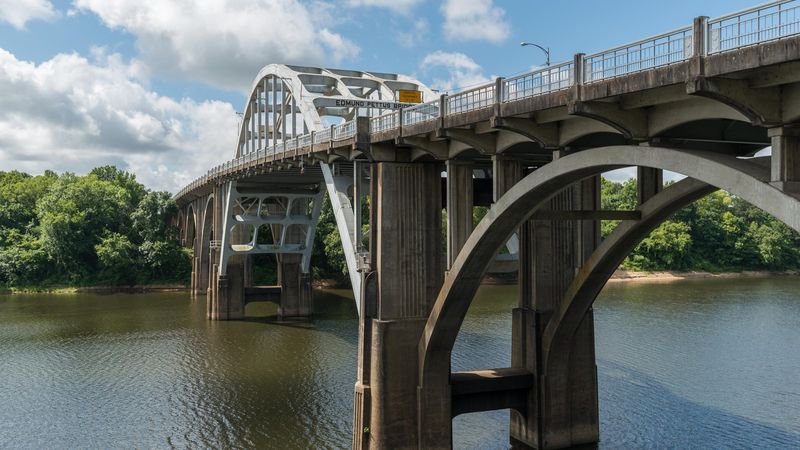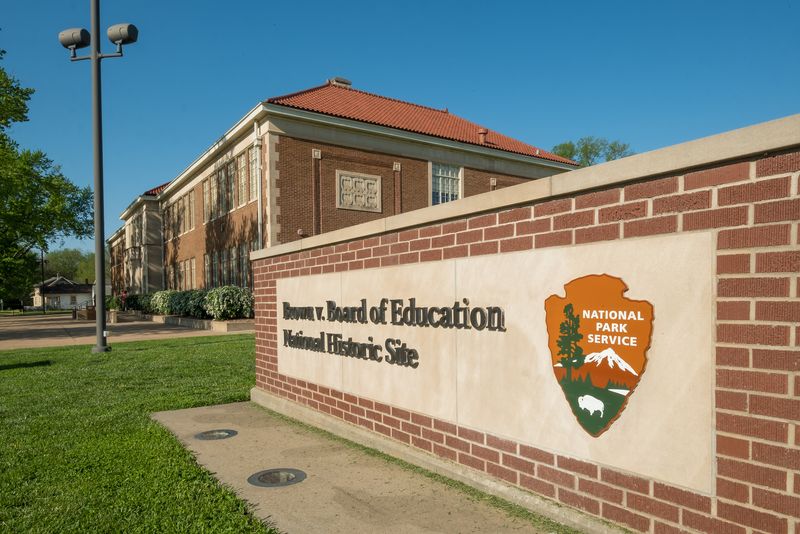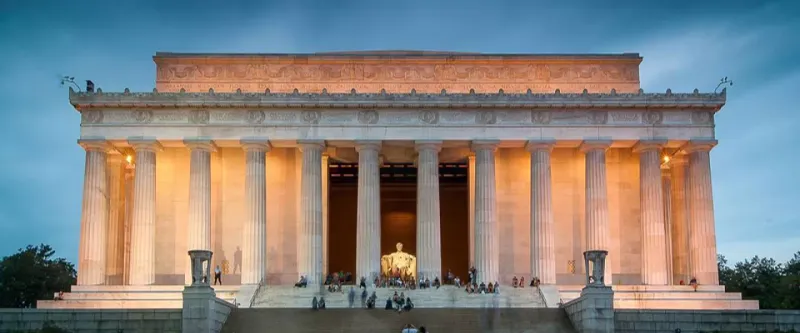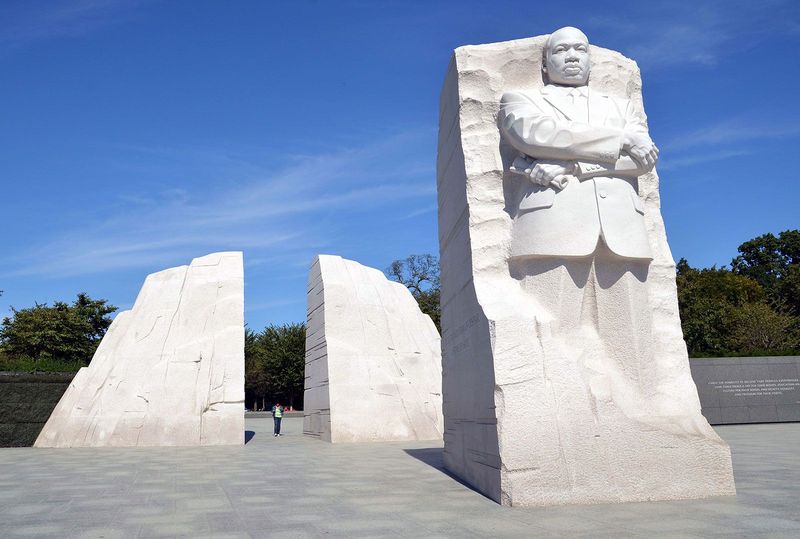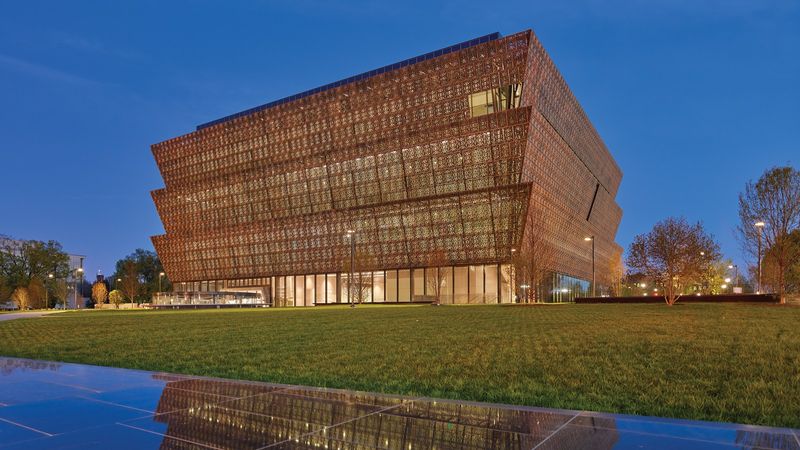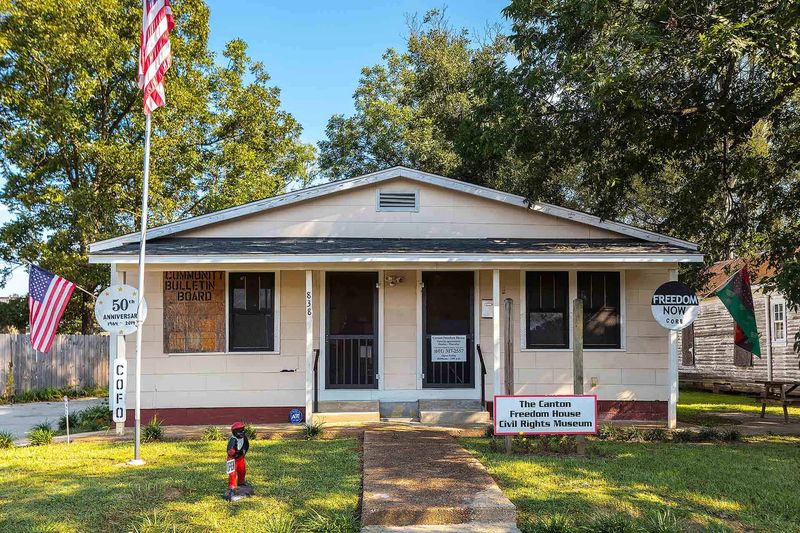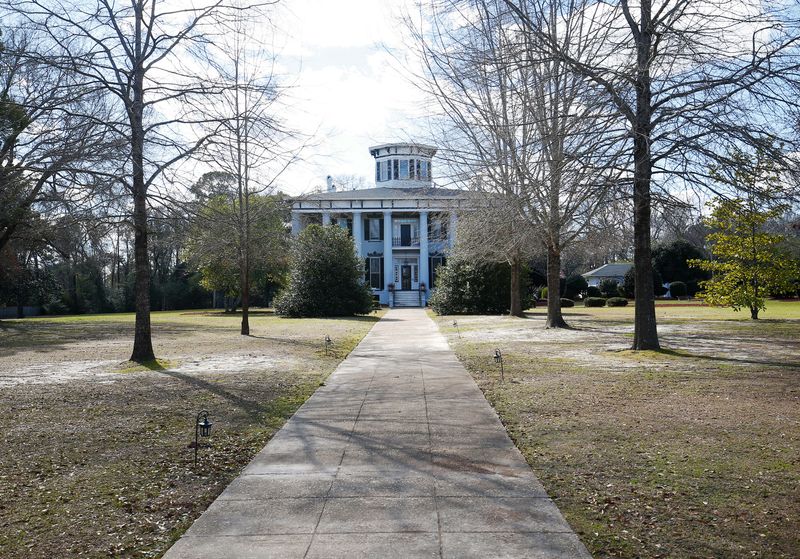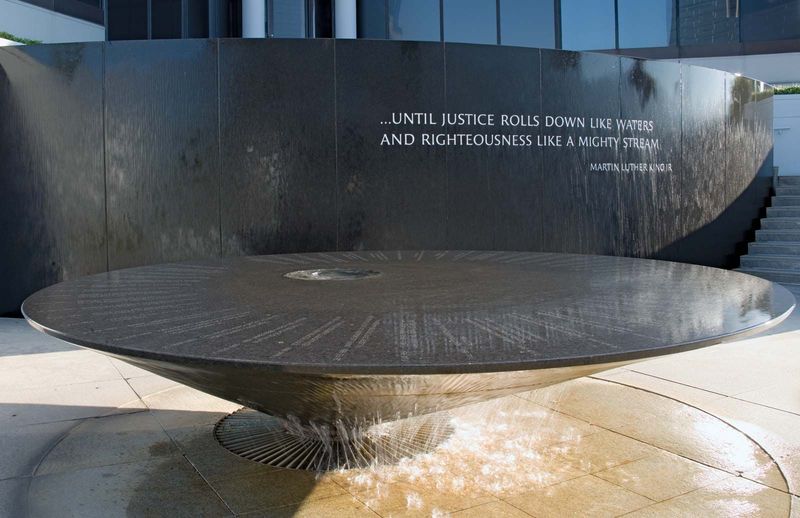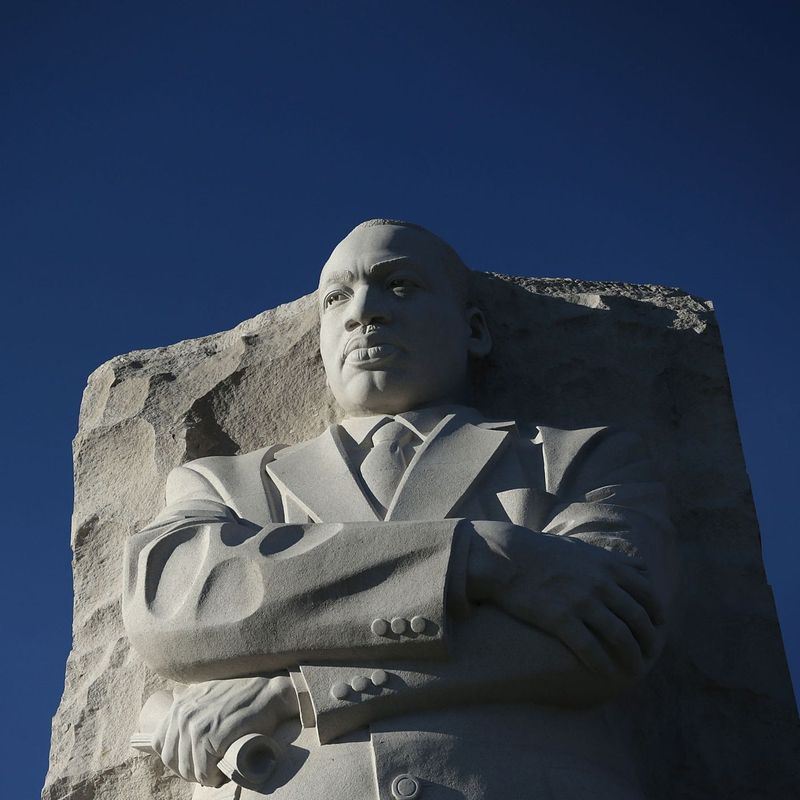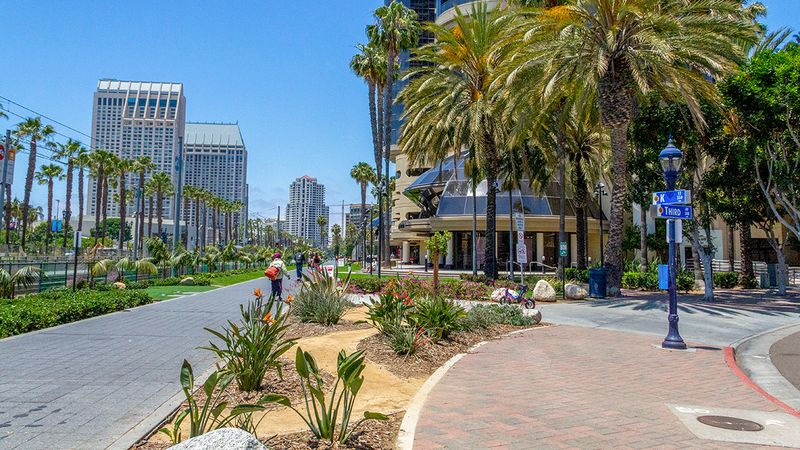Exploring the legacy of Martin Luther King Jr. takes us on a profound journey through historic sites across the United States. These locations not only commemorate his impactful life but also tell the stories of the Civil Rights Movement.
Each site is a testament to his enduring influence and the ongoing struggle for equality and justice. From Atlanta to Washington D.C., each landmark offers a unique window into the past, inviting visitors to reflect on the progress made and the road ahead.
Join us as we explore 20 sites that honor the spirit and legacy of Dr. King.
1. Martin Luther King Jr. National Historical Park (Atlanta, GA)
Located in the heart of Atlanta, the Martin Luther King Jr. National Historical Park offers an inspiring glimpse into the early life of a civil rights icon. Visitors can tour the modest two-story house where Dr. King was born and raised, providing a tangible connection to his formative years.
The park also includes the historic Ebenezer Baptist Church, where Dr. King was both baptized and served as a pastor. Nearby, the museum offers a deep dive into his legacy, ensuring that his message and mission continue to resonate with future generations.
2. Ebenezer Baptist Church (Atlanta, GA)
Ebenezer Baptist Church holds a special place in the annals of civil rights history. As the spiritual home of Martin Luther King Jr., it was here that he honed his powerful oratory skills and delivered sermons that would inspire a nation.
The church’s sanctuary, with its wooden pews and stained glass windows, remains largely unchanged, offering a sense of stepping back in time.
Today, visitors can attend services and tours, immersing themselves in the rich history of a congregation that played a pivotal role in the Civil Rights Movement.
3. The King Center (Atlanta, GA)
Established by Coretta Scott King in 1968, The King Center stands as a living memorial dedicated to advancing Dr. King’s principles of nonviolence and equality. The site includes the final resting place of both Dr. King and his wife, Coretta, set against a serene reflecting pool.
Visitors can explore exhibits that highlight Dr. King’s philosophy and the ongoing struggle for civil rights. The center also serves as a hub for educational programs and community events, ensuring that the legacy of Dr. King continues to inspire future generations.
4. National Civil Rights Museum at the Lorraine Motel (Memphis, TN)
The National Civil Rights Museum, located at the Lorraine Motel in Memphis, serves as a powerful reminder of the struggles and triumphs of the Civil Rights Movement. The motel is famously known as the site where Martin Luther King Jr. was assassinated on April 4, 1968.
Visitors can view the preserved rooms and balcony where Dr. King spent his final moments. The museum’s exhibits offer a comprehensive overview of civil rights history, showcasing pivotal moments and figures that shaped a nation. It stands as a solemn tribute to the fight for equality.
5. Dexter Avenue King Memorial Baptist Church (Montgomery, AL)
Dexter Avenue King Memorial Baptist Church in Montgomery is where Martin Luther King Jr. began his journey as a pastor in 1954. Serving as the church’s pastor, Dr. King played a pivotal role in the Montgomery Bus Boycott, a landmark event in the Civil Rights Movement.
The church’s modest exterior belies the powerful sermons and meetings that took place within its walls. Visitors can explore the basement museum, which provides insights into the church’s historical significance and its critical role in shaping the fight for civil rights in America.
6. Dexter Parsonage Museum (Montgomery, AL)
The Dexter Parsonage Museum in Montgomery offers a personal glimpse into the life of Martin Luther King Jr. during one of the most turbulent periods in civil rights history.
This modest home, once bombed in response to Dr. King’s leadership in the bus boycott, stands as a testament to his courage and determination.
Inside, visitors can explore rooms carefully restored to reflect the 1950s, providing an intimate look at the personal and professional life of Dr. King. The museum highlights the challenges faced by those on the frontline of the Civil Rights Movement.
7. Rosa Parks Museum (Montgomery, AL)
The Rosa Parks Museum, located on the campus of Troy University in Montgomery, commemorates the bravery and impact of Rosa Parks and the Montgomery Bus Boycott.
The museum offers interactive exhibits and a recreated bus experience, allowing visitors to step back in time and witness the moment that sparked a movement.
Through multimedia presentations, the museum educates visitors about the boycott’s significance and the collective efforts that propelled the Civil Rights Movement forward. It serves as an inspiring tribute to those who fought for justice and equality alongside Martin Luther King Jr.
8. Birmingham Civil Rights Institute (Birmingham, AL)
The Birmingham Civil Rights Institute, situated in downtown Birmingham, chronicles the city’s central role in the Civil Rights Movement of the 1960s. Through powerful exhibits and multimedia presentations, visitors gain insights into the challenges faced by those who risked their lives for equality.
The institute’s galleries highlight key events, including the Birmingham Campaign and the tragic bombing of the 16th Street Baptist Church. It stands as a testament to the courage and resilience of individuals who stood at the forefront of change, offering educational programs and a reflective space for all.
9. 16th Street Baptist Church (Birmingham, AL)
The 16th Street Baptist Church in Birmingham is an iconic symbol of the Civil Rights Movement, famously known for the tragic bombing in 1963 that claimed the lives of four young girls.
This historic church served as a meeting place for civil rights leaders, including Martin Luther King Jr., and played a crucial role in the fight for equality. Visitors can explore the sanctuary, which remains a poignant reminder of the struggle for justice.
The church continues to serve as a place of worship and a beacon of hope, fostering dialogue and understanding.
10. Selma to Montgomery National Historic Trail (AL)
The Selma to Montgomery National Historic Trail preserves the route of the 1965 Voting Rights March, a pivotal event in civil rights history. Spanning 54 miles, the trail follows the footsteps of activists, including Martin Luther King Jr., who marched for voting rights.
Along the way, visitors encounter interpretive centers and historic markers that tell the story of the march’s significance. The trail invites reflection on the sacrifices made in the pursuit of freedom and the ongoing fight for civil rights. It stands as a testament to the power of collective action and determination.
11. Edmund Pettus Bridge (Selma, AL)
The Edmund Pettus Bridge in Selma is a powerful symbol of the Civil Rights Movement, marking the site of the infamous “Bloody Sunday” on March 7, 1965. On this day, peaceful marchers advocating for voting rights were met with brutal violence as they attempted to cross the bridge.
Martin Luther King Jr. later led a successful march from Selma to Montgomery, highlighting the need for change. Today, the bridge stands as a national historic landmark, drawing visitors to reflect on the struggle for equality and the courage of those who stood up for justice.
12. Brown v. Board of Education National Historic Site (Topeka, KS)
The Brown v. Board of Education National Historic Site in Topeka commemorates the landmark Supreme Court decision that declared racial segregation in public schools unconstitutional.
This site highlights the significant legal victory that paved the way for desegregation and the broader Civil Rights Movement. Visitors can explore exhibits that delve into the case’s history and its impact on American society.
The site serves as a powerful reminder of the ongoing struggle for equality in education and the tireless efforts of those who fought to ensure equal opportunities for all children, regardless of race.
13. Lincoln Memorial (Washington, D.C.)
The Lincoln Memorial in Washington, D.C. is not only a monument to Abraham Lincoln but also a hallowed site in the Civil Rights Movement. It was here on August 28, 1963, that Martin Luther King Jr. delivered his iconic “I Have a Dream” speech to a crowd of thousands during the March on Washington.
The memorial’s grand columns and serene reflecting pool provide a fitting backdrop to Dr. King’s call for racial equality and justice. Today, it remains a place of reflection and inspiration, drawing visitors from around the world to honor his dream.
14. Martin Luther King Jr. Memorial (Washington, D.C.)
The Martin Luther King Jr. Memorial, located on the National Mall in Washington, D.C., stands as a powerful tribute to Dr. King’s life and legacy. Unveiled in 2011, the memorial features a striking statue of Dr. King emerging from a “Stone of Hope,” inspired by his “I Have a Dream” speech.
Surrounding the statue are inscriptions of his quotes, capturing the essence of his vision for justice and equality. Visitors can reflect on Dr. King’s enduring impact and the principles of nonviolent resistance that continue to inspire movements for social change worldwide.
15. Smithsonian National Museum of African American History and Culture (Washington, D.C.)
The Smithsonian National Museum of African American History and Culture in Washington, D.C. offers an immersive experience into the rich tapestry of African American history, including Martin Luther King Jr.’s pivotal role in the Civil Rights Movement.
The museum’s exhibits feature artifacts, photographs, and personal stories that highlight Dr. King’s contributions to the fight for equality. Visitors can explore interactive displays that bring to life the struggles and triumphs of the movement.
The museum serves as a vital educational resource, fostering understanding and dialogue about the ongoing pursuit of civil rights in America.
16. Medgar Evers Home Museum (Jackson, MS)
The Medgar Evers Home Museum in Jackson, Mississippi, honors the life and legacy of Medgar Evers, a prominent civil rights activist who was tragically assassinated in 1963.
This modest home, where Evers lived with his family, has been preserved as a museum to educate visitors about his tireless efforts to combat racial injustice and discrimination.
Exhibits feature personal artifacts and historical documents that provide insight into Evers’ work and the broader civil rights struggle. The museum stands as a poignant tribute to a man whose dedication and sacrifice continue to inspire the fight for equality.
17. Tuskegee University (Tuskegee, AL)
Tuskegee University, located in Alabama, is a historic institution renowned for its contributions to African American education and civil rights history. Founded by Booker T. Washington, the university has played a pivotal role in advancing educational opportunities for African Americans.
The campus itself is steeped in history, with landmarks such as the George Washington Carver Museum and the site of the Tuskegee Airmen training. Visitors can explore the university’s rich heritage and its ongoing commitment to equality and social justice, making it a vital part of the civil rights narrative and a beacon of empowerment.
18. Southern Poverty Law Center’s Civil Rights Memorial (Montgomery, AL)
The Southern Poverty Law Center’s Civil Rights Memorial in Montgomery stands as a somber tribute to those who sacrificed their lives in the pursuit of equality and justice.
Designed by artist Maya Lin, the memorial features a circular black granite table inscribed with the names of civil rights martyrs and key events in the movement’s history. Water flows gently over the table, symbolizing the ongoing struggle for justice.
Visitors can also reflect at the adjacent Wall of Tolerance, which invites individuals to commit to fighting hate and injustice in their communities.
19. Georgia State Capitol MLK Statue (Atlanta, GA)
The Georgia State Capitol MLK Statue in Atlanta stands as a proud tribute to Martin Luther King Jr. in his home state. Unveiled in 2017, the statue captures Dr. King in a moment of contemplation and purpose, symbolizing his enduring impact on Georgia and the nation.
Located on the grounds of the State Capitol, the statue serves as a reminder of Dr. King’s leadership and the progress made in the fight for civil rights. Visitors can reflect on the legacy of a man who shaped history and whose vision continues to guide the pursuit of justice.
20. MLK Promenade (San Diego, CA)
The MLK Promenade in San Diego offers a scenic tribute to Martin Luther King Jr.’s contributions to justice and equality. This beautifully landscaped walkway runs through downtown San Diego, adorned with plaques that highlight Dr. King’s achievements and quotes.
Visitors can enjoy a leisurely stroll while reflecting on the values of equality and nonviolence that Dr. King championed. The promenade serves as a serene space for contemplation and inspiration, inviting individuals to consider their role in continuing the legacy of Dr. King and fostering a more just society.
